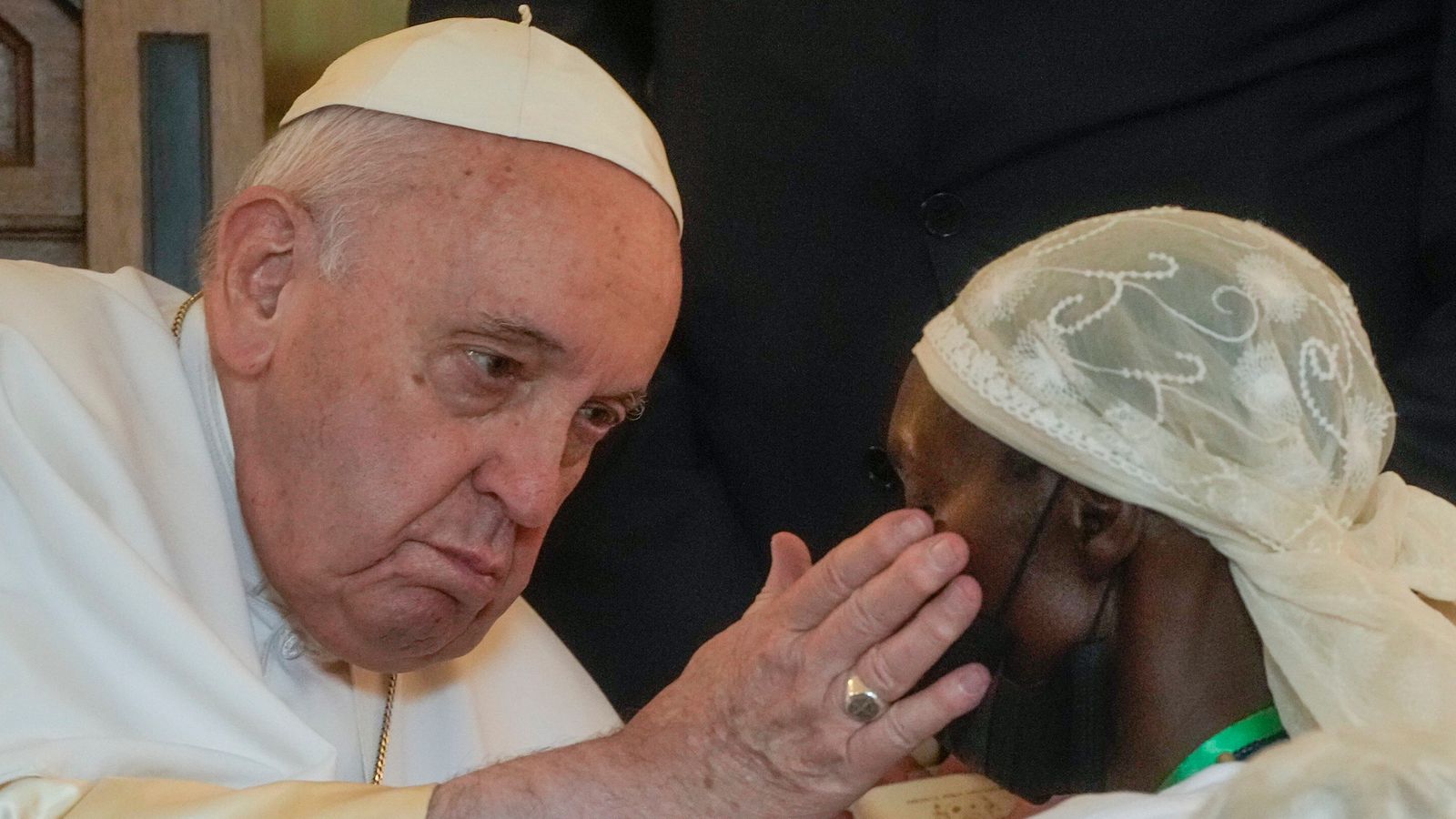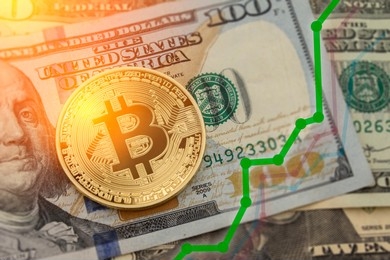Pope Francis is being welcomed by gay rights activists as he begins a tour of Congo and South Sudan.
Speaking last week, ahead of his Africa trip, the head of the Catholic church said “being homosexual isn’t a crime” – something described by an activist in Kinshasa, Scaly Kep’na, as a “beautiful message”.
Francis also said that laws which criminalise homosexuality are “unjust”, and that the Vatican should help put an end to them. “It must do this,” he said.
His comments “mark an evolution of the church”, Mr Kep’na added.
There are 64 countries that still criminalise same-sex relations and Africa accounts for half of them, according to the International Lesbian, Gay, Bisexual, Trans and Intersex Association World (ILGA World).
Congo is an important destination for Francis, where about half of the 105 million population are Catholics.
A mass being held at Ndolo airport in the capital, Kinshasa, was expected to draw as many as two million of the faithful.
Africa is one of the few places in the world where the Catholic church is growing, both in the number of worshippers and individuals wanting to become priests.
This is Francis’s fifth trip to the continent in his 10-year pontificate. He will be there until Sunday.
While it is unclear whether he will talk about homosexuality, Julia Mukuala, 38, a Congolese activist and member of the Pan-Africa ILGA Board, welcomed his recent comments.
“We think it will change the perception of all the religious people in our countries who think that when you are homosexual, you are to be slaughtered, to be dehumanised, you are devils,” she said.
Her organisation put up a large banner in Kinshasa on behalf of the Congolese LGBT+ community, decorated with a rainbow flag and a welcoming message to Pope Francis.
Not everyone sees the Pope’s comments in quite such a positive light, however.
“The Holy Father is far from being a supporter of homosexuality,” said Father Alain Difima, head of Kinshasa’s Catholic abbots.
He added that the Pope “simply wanted to show that a person who practices homosexuality is still capable of remaining in society”.
Father Difima continued: “It’s his way of giving a chance to a homosexual person whom the world sees as a criminal.”








